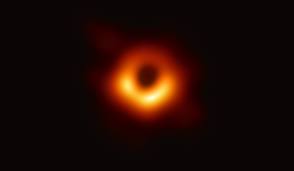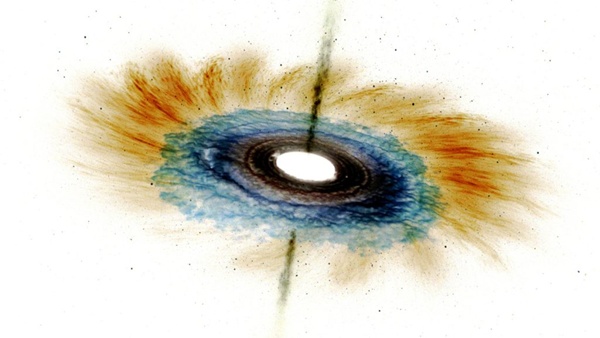I’m always amazed by the natural world around us. Especially regarding astronomy.

We know black holes exist, especially since we now have photographic proof, as this photo from NASA shows. We know they will suck in anything that gets inside their event horizon. But where does all of that cosmic material go?
Could the black hole have an opposite? If you think about it, most phenomena do. Or as Sir Isaac Newton once said, “For every action, there is an equal and opposite reaction.” So if we have a black hole, would there be such a thing as a white hole, that would spew all that matter back out? Perhaps matter entering a black hole travels through a wormhole and comes out a white hole somewhere else in the galaxy?

Or maybe black holes never die, they become white holes in a rejuvenated life.
The idea isn’t as farfetched as it sounds. The idea that matter entering a black hole is gone forever just doesn’t seem right physics-wise; material is not supposed to be destroyed that easily. (This is called the black hole information paradox.) Also, there is something we can’t see helping to hold the universe together. At present we call this dark matter and think it makes up as much as 84 percent of all the matter in the universe. But a 2018 paper suggested that white holes might make up a major portion, if not all, of this matter we can’t find.
There is only one problem — we’ve never found a white hole. “White holes are speculative and there’s no reason to think they exist,” said astrophysicist Kevin Schawinski in a 2011 NASA chat.
But then, there’s still a lot we don’t know about the universe. It won’t hurt to look.
For more on white holes, see http://www.astronomy.com/news/2019/06/white-holes-do-black-holes-have-mirror-images?, the source for this piece. The white hole representation came from that site.
